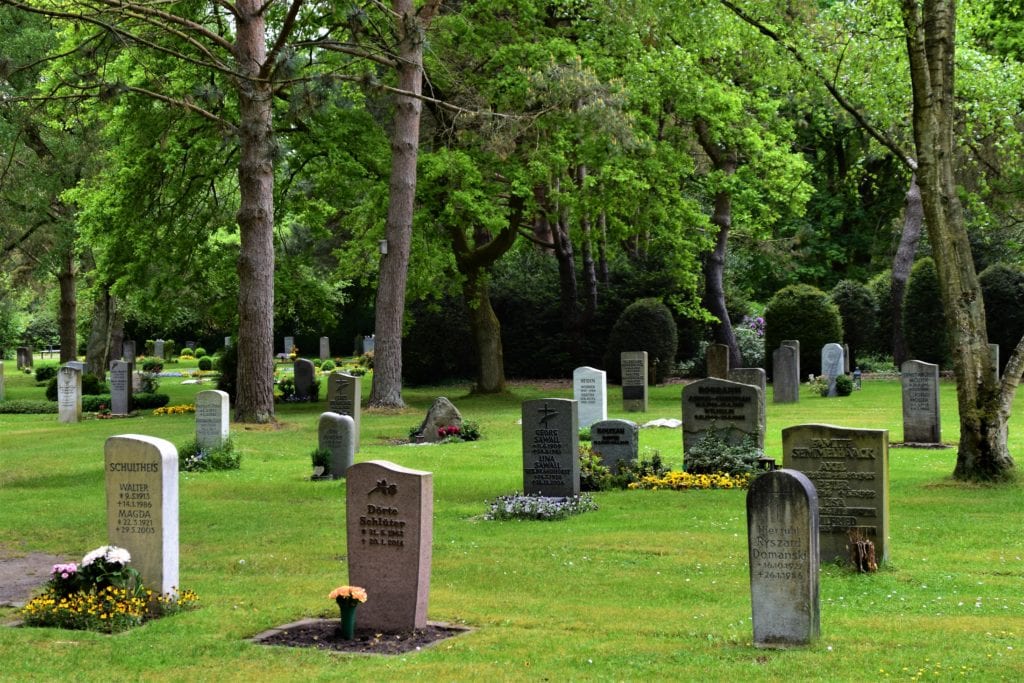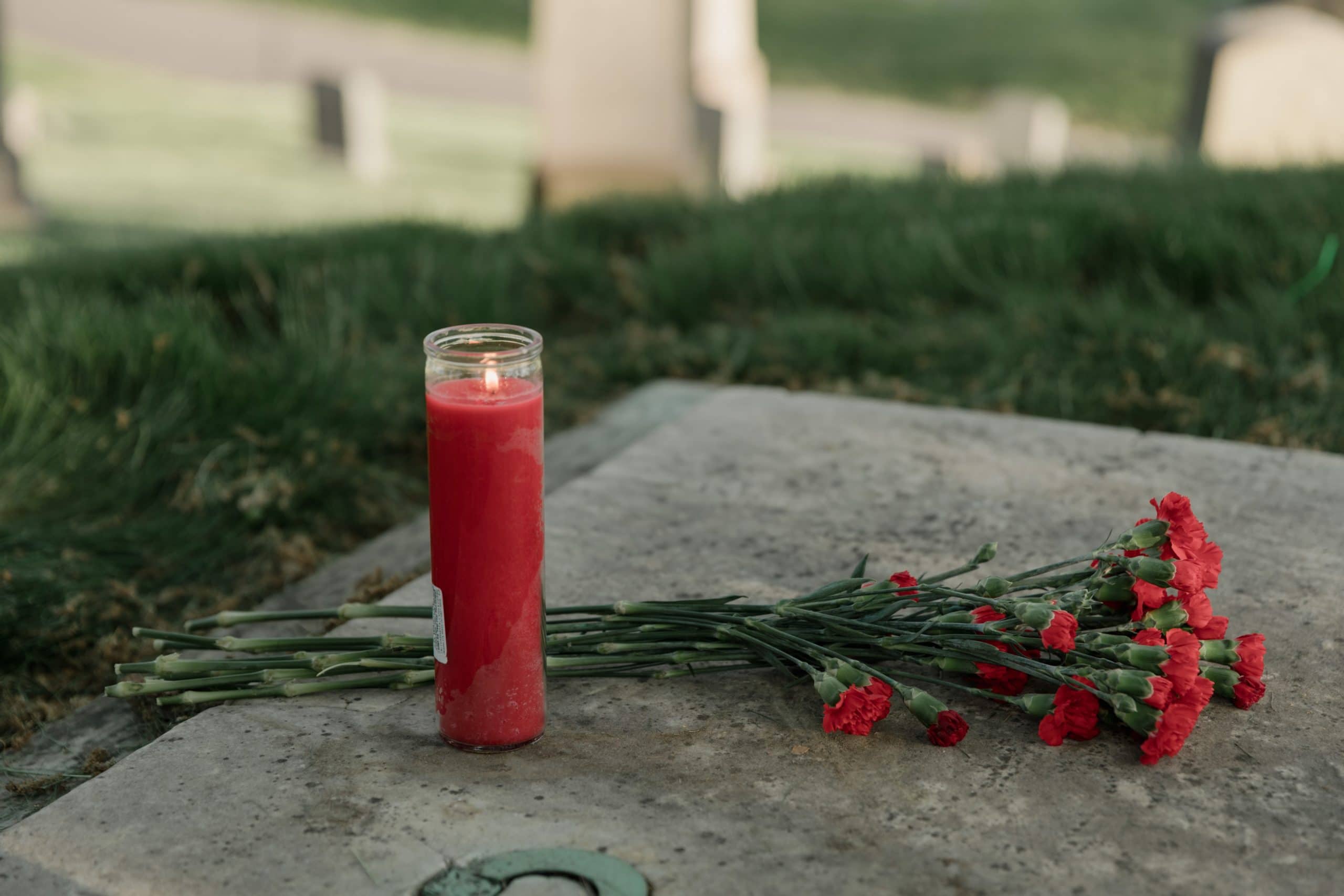How to think about it as a child
As a little boy, I was always surprised that the beautiful Advent arrangements that are sold in November, all have no candle. At some point I was enlightened by my mother that these arrangements are by no means Advent arrangements. They are sold as grave decorations to be placed on the graves of deceased relatives. And indeed, as I strolled afterwards once over a cemetery – more from curiosity and boredom – I saw them everywhere distributed lie, these beautiful arrangements. Together with the placed grave lights it had somehow something contradictory for me. The graves with the dead, which were buried in the cold and uncomfortable earth and on top of it the affectionately arranged surfaces evenly with these arrangements and grave candles, which looked for me despite everything somehow after Advent. In my childish imagination I always believed that the relatives wanted to make the deceased somehow a little cozy in the cold and wet November days.
Sunday of the Dead, Memorial Day, Eternity Sunday, All Souls' Day, Remembrance Day of the Deceased for the Commemoration of the Dead

As I grew older, I realized that November is full of memorial days for the deceased. I always wondered why this cold and uncomfortable month was chosen. One could have taken also the Wonnemonat May. On warm and bright days one would have taken away the topic death perhaps a little the fright. May already has something cheerful and friendly about it. The gray weather in November automatically evokes gloom and loneliness. You don’t have to constantly reinforce that with some commemoration of the dead. It would be much easier to deal with in May.
But that’s the way it is – and somehow November is certainly the best month for it. Who knows whether the topics of mourning, death and remembrance would be taken so seriously in other months and whether they would be given the importance they deserve. And since the Advent season begins immediately after Sunday of the dead, the last Sunday in November, it is certainly not a bad thing for everyone to come down once again and become contemplative before it goes into the joyful and exuberant Advent season with Christmas parties, presents, good food and drink and everything else that the Christmas season brings with it.
For some people, every day is Sunday of the dead
Dealing with the grief of a loved one or friend varies from person to person. Some never get over the passing of a close family member and thus have a day of remembering every day, some have a relatively short period of mourning and can quickly go about business as usual. It always depends on the mentality of the individual. For some, the Sunday of the dead is completely superfluous, because they remember deceased fellow human beings frequently anyway, for others it is an important day of remembrance, on which the dead are especially and explicitly remembered.
Not a public holiday - yet strictly observed
Sunday of the dead always falls on a Sunday and thus, unlike many other holidays, does not have a fixed date. The fixed date is the last Sunday in November. Sunday is a Protestant holiday and is considered a counterpart to the Catholic memorial day “All Souls’ Day”. But although sunday of the dead is not a legal holiday, it is universally observed beyond the denomination, even in law. Out of respect for those who mourn, many things are prohibited on sunday of the dead. For example, many events involving dancing and singing, or even sporting events. On the one hand, one wants to give expression to the special meaning of the Sunday of the dead, on the other hand, one wants to give every person, even those who would otherwise be involved in a sporting event, for example, the opportunity to spend the Sunday of the dead according to their needs.
Decorate graves and memorial services

So, the Sunday of the dead is characterized by decorated graves and commemorative ceremonies in churches or any political bodies. Here the personal or private way to commemorate the dead, there the public, common, church and unfortunately often staged way. Especially when politicians put on their painfully consumed mourning face in the most public way possible and lay a wreath in memory of deceased soldiers before the eyes of those present and TV viewers. Not to diminish the importance of such ceremonies. But there is something bizarre when the name of a politician and his party affiliation are more in the focus of the TV cameras than the actual occasion.
Remembering the deceased not only on Sunday of the dead
However, there are many more ways to cope with mourning or to remember the deceased than the Sunday of the dead. Some people set up corners in their homes to remember the dead. With pictures of the deceased, always fresh flowers, mementos or special candles. Other people create photo albums that contain only photos of the deceased or of situations with him. Also the regular visit of a grave – not only on Sunday – as well as the particularly loving care of the grave are rituals of remembrance and coping with grief.
Capture memories now!
Get access to hundreds of questions. We'll structure your answers, make sure you don't forget anything, and take care of printing and mailing. In a few weeks, you'll have your personal memory book in your mailbox as a memorial to your loved one!
The Meminto Stories memory book
With Meminto Stories you can write a whole book about a deceased person. With stories and pictures from his life. With shared memories or stories from him or about him. You can write the book alone or together with people who are grieving just like you. Meminto Stories supports you with a tool that was developed especially for the production of a memory book. You will be asked questions on a regular basis, which you answer by e-mail or telephone. Little by little, this will create a story about the loved one who is no longer with you. Meminto Stories helps you with the design of the cover and also with all other technical questions concerning the creation of your book. And Meminto also takes care of the printing. So everything is very simple. You can really dedicate yourself completely to the memories of the person you want to write the book about. You can create the book just for you or for all friends and relatives who like to remember the deceased just like you do – and not only on sunday of the dead.

















